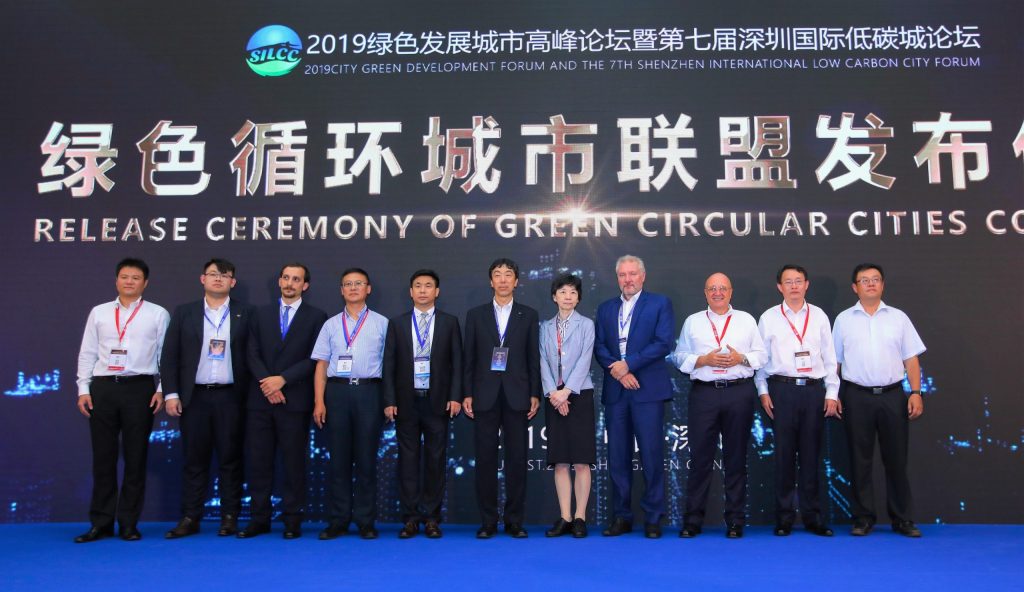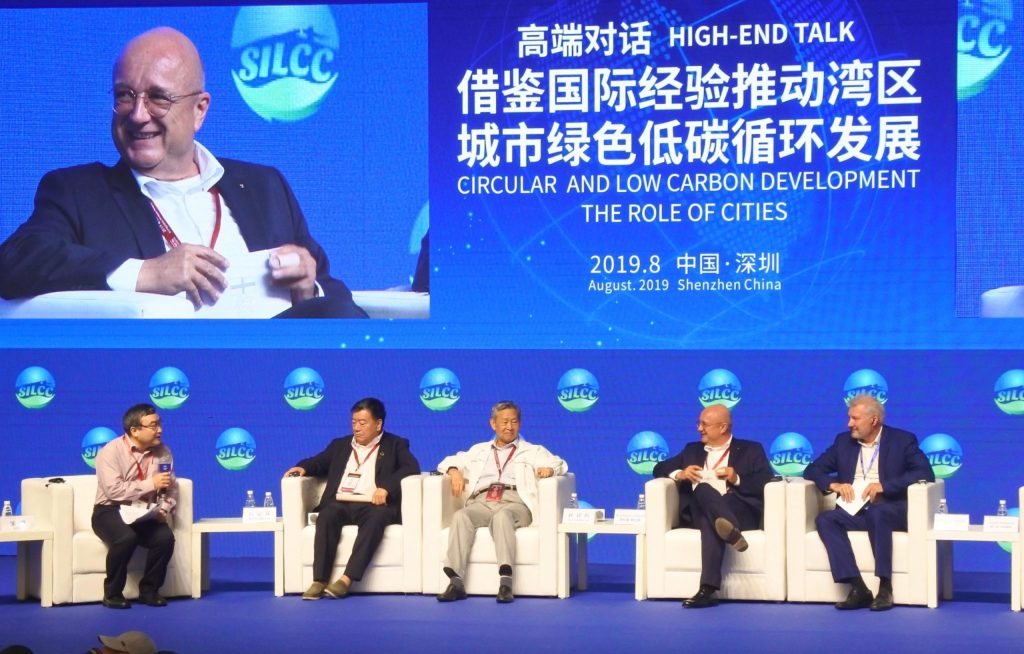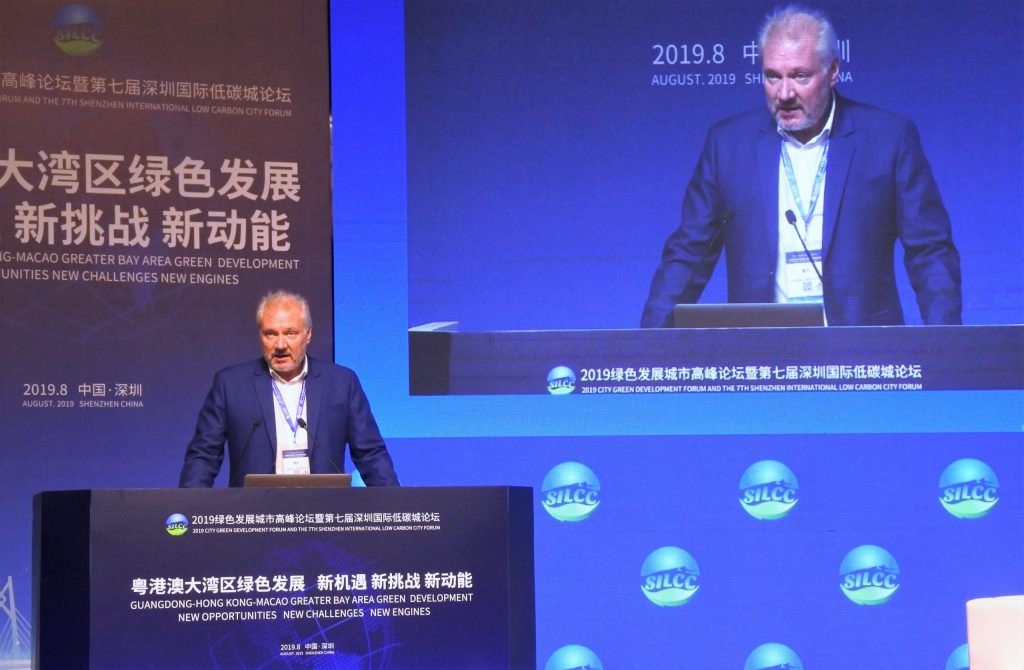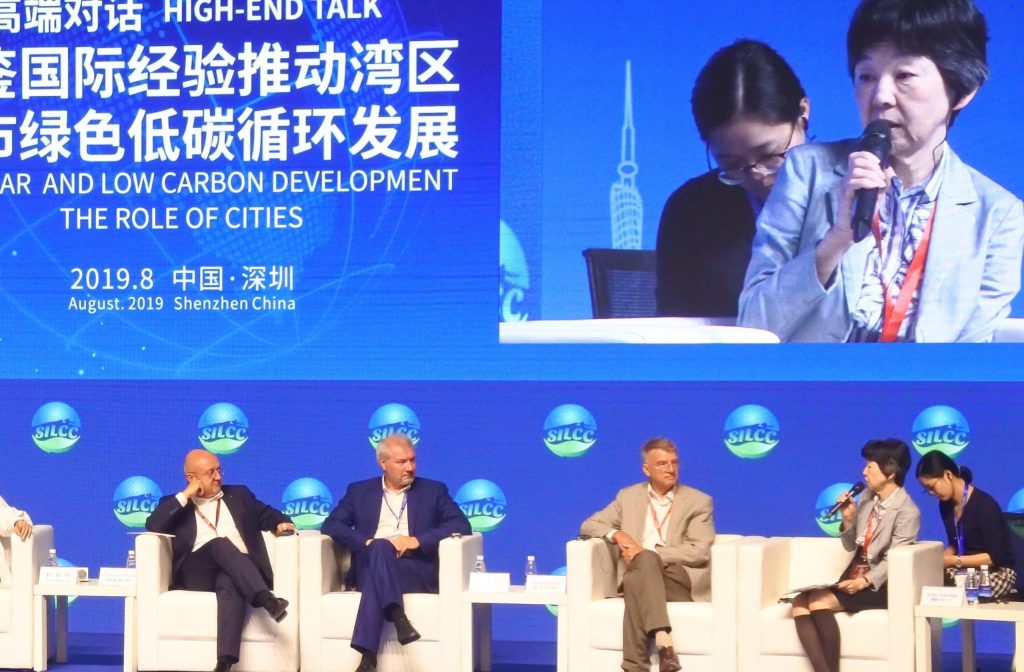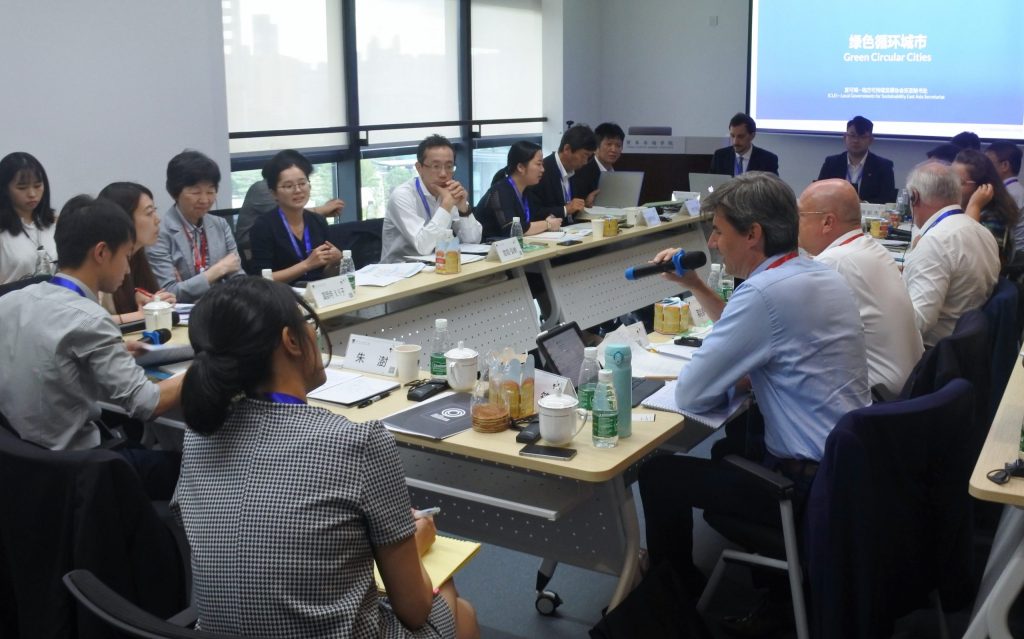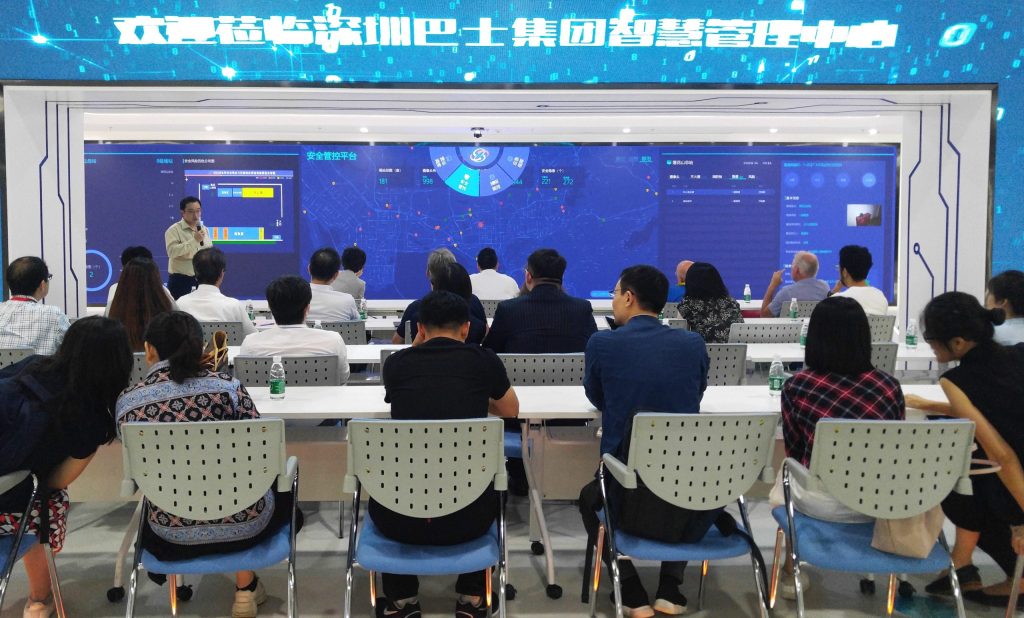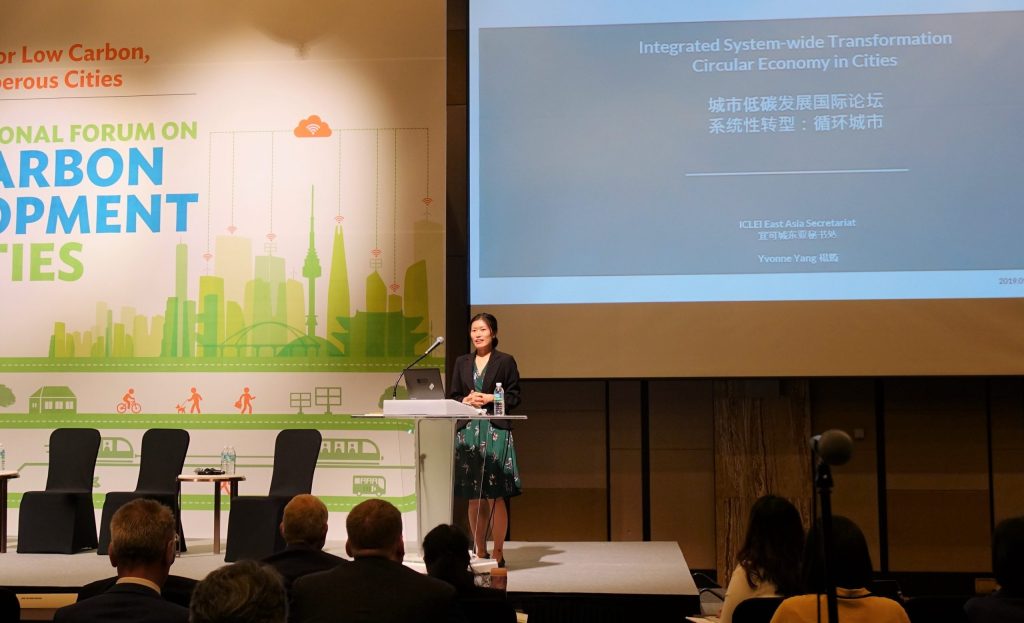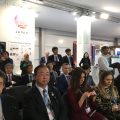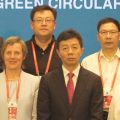Six Cities embarked on the journey towards circular development
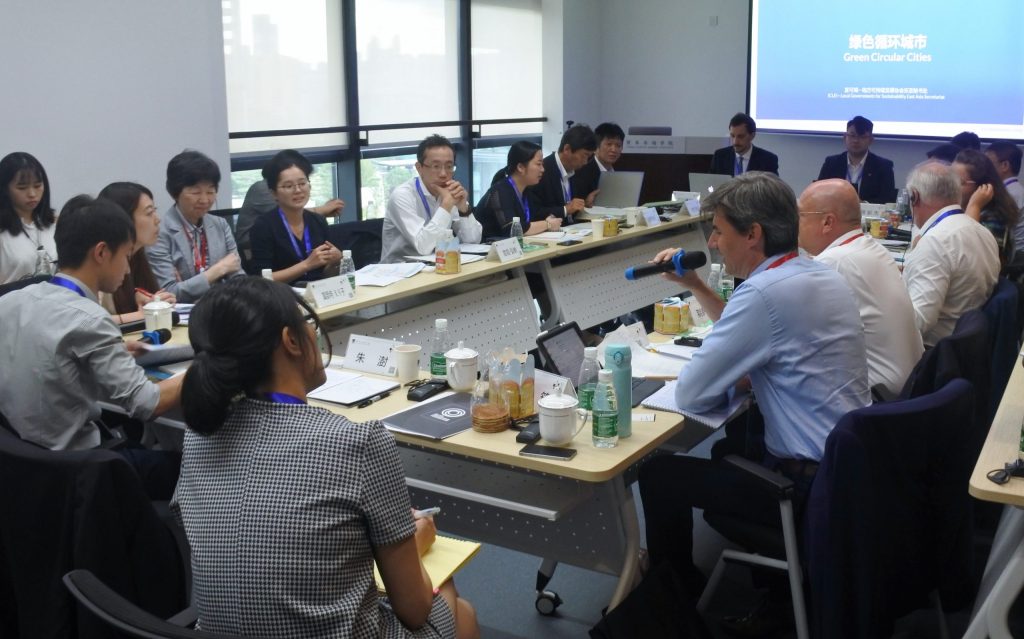
With the global economy currently being only 9% circular, it has been estimated that circular economy measures could cut 33% of greenhouse gas emissions embedded in productions and serve as a key lever in bridging the 1.5ºC emissions gap – the toughest target of the Paris Agreement. However, the potential of circular economy approaches and material-related consumption and production has often been overlooked.
Thus, during the Shenzhen Low Carbon City Forum on 29 August, the ICLEI East Asia Secretariat launched the Green Circular Cities Coalition, presenting an opportunity for cities across the world to become global leaders in urban circular economy transition.
On this occasion, a mayoral dialogue, titled “Circular development and Paris Agreement: the Role of Cities”, was also held at the Forum to highlight the importance of circular economy measures in cities and their contribution to the Paris Agreement.
|
The Green Circular Cities Coalition officially launched. |
Bridging the Emissions Gap: Role of Cities in Circular Development
“The idea of a zero-waste city is to maximize the reuse of wasted materials in everyday life,” said Xiangwang Du, senior scientist advisor of the China Academy of Engineering.
The Bonn City of Germany has invested in circularity management of raw materials. On this occasion, the city’s vice Mayor Reinhard Limbach suggested that local governments should play a pivotal role by providing public services beyond waste management, incentivizing innovations for sustainability, and encouraging citizens to reduce waste in their daily lives.
The Dutch municipality of The Hague, for instance, has indeed made critical efforts and achievements in utilizing public authorities’ procurement power to achieve greater sustainability and avoid or mitigate negative environmental and social impacts.
Meanwhile, with the ambitious goal of achieving carbon neutrality by 2029, the Finnish city Turku embeds circular economy measures into its development roadmap. In this regard, the vice Mayor Jarkko Virtanen highlighted the impact of synergizing resource usage on carbon neutrality, such as recovering energy from waste treatment for district heating and cooling, and once again, reaffirmed the city’s commitment to becoming a front-runner in transitioning toward a circular economy.
In Asia, the Japanese city Yokohama has set its goal to further reduce the municipal solid waste and the associated greenhouse gases emission by 10% by 2025, with a wider target to achieve net-zero emissions by 2050; whereas Shenzhen of China promotes innovations related to green energy, reuse of waste and low carbon development.
|
|
|
|
Green Circular Cities Coalition
ICLEI has identified Circular Development as one of its five integrated pathways toward sustainable urban development. In particular, to support local governments in further strengthening their joint efforts in fostering transitions towards low carbon and circular development, providing social benefits while respecting ecological boundaries, ICLEI officially launched the Green Circular Cities Coalition during the Forum, presenting a platform to connect cities, experts, businesses and relevant stakeholders to shift the mindset from “waste management” towards “resource management”, reduce waste, and increase circularity via experiences exchange and mutual learning.
Based in East Asia, the Green Circular Cities Coalition has already brought together 6 local governments of Changchun, Datong (China), Bonn (Germany), Turku (Finland), Nagano Prefecture, and Yokohama (Japan), and is open to any local and subnational governments committed to empowering and accelerating transitions towards a sustainable and circular future.
Representatives from the Coalition cities and partners including TORMA, the Ellen MacArthur Foundation, and Circle Economy convened in Shenzhen to celebrate the launch and had the first joint meeting to set the agenda for future work. Taking this opportunity, the representatives also visited the city’s Bao-an Waste-to-Energy Power Plant to learn about the advanced technology suitable for low calorific value and high-moisture-content wastes and experienced the city’s 100% electric bus fleet – the first municipality in the world phases out fossil fuel urban fleet.
Through a dynamic internal dialogue among the Coalition cities and partners, striking similarities emerged despite their differences in terms of region, culture, and urgent environmental issues. Stories arose from on-the-ground examples such as combining circular development into the roadmap toward carbon neutrality; mainstreaming green and sustainable public procurement; synergizing wastewater management and district heating and utilizing biomass fuel from food and organic waste.
|
Members of the Green Circular Cities Coalition had the first joint meeting |
Learning about each other’s environmental, economic and social conditions, and their commitments to circular development, the Coalition cities identified core challenges in wastewater, plastic, food waste, and construction waste. In addition, the cities have also demonstrated high interest in up-scaling circular economy approaches and synergizing with existing projects at the regional level, and the material flows analysis methodology which serves to quantify flows and stocks of materials or substances within systems.
These focus areas will be further developed based on the Coalition cities’ joint vision to co-create solutions to unsolved challenges and fill remaining knowledge gaps. The Coalition Secretariat, ICLEI, will develop a draft work plan, and cities’ circular development strategies, plans, and projects will be shared among Coalition members.
Following the official launch, the Green Circular Cities Coalition was also presented at the 2nd International Forum on Low Caron Development for Cities, hosted by the Asian Development Bank in Seoul, Korea on 2-5 September.
|
|
|


